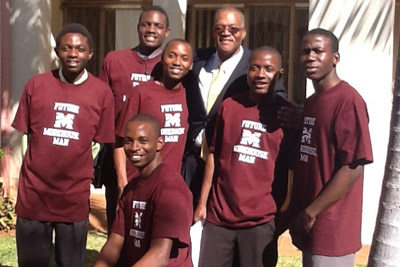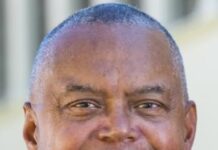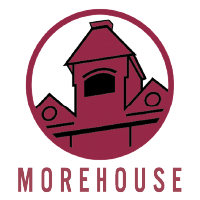
Strive Masiyiwa, founder and chair of Econet Wireless, has established the Ambassador Andrew Young International Scholars program. Masiyiwa, a native of Zimbabwe has invested $6.4 million in the program that will send 40 African students to Morehouse College in Atlanta. The students will receive full, four-year scholarships.
This fall, the first Andrew Young International Scholars will arrive at Morehouse. Eight are from Zimbabwe and two are from Burundi. The 10 African students will arrive for a special orientation program four days before other Morehouse students arrive on campus. All 10 African students will be paired with African American roommates.
Masiyiwa stated, “What I want to see coming from the student who comes out of the Morehouse system is a much more confident, self-assured, more complete young man who is not struggling to find out who he is in the world.”
Philip Howard, vice president for institutional advancement at Morehouse added, “They hope the young men will bring the kinds of 21st -century management, leadership, social justice, civic engagement, all those things Morehouse provides, back to the continent to lead Africa into the 21st century.”
Masiyiwa plans to begin a similar program for women next year that will send African students to Spelman College in Atlanta.













For 6 million dollars they could probably find 300
students on the south side of Chicago who would love
to attend Morehouse or Spelman. Even on the airplane they tell you to put your own mask on first.
If Strive Masiyiwa lived on the south side of Chicago, I imagine he could and would find 300 students to attend either or both schools. However, based on what is printed, he s a native of Zimbabwe and is doing what he sees necessary (and good) for males in Africa.I applaud his efforts!
Oprah will have students from her Academy at Spelman in the fall. I am happy about that, too, because the students in Africa do not have the same opportunity or encouragement to attend college as our American students – who if they REALLY want it, will find a way – even by way of community college first – maybe even part time.
It has been my experience, as a teacher in both the US and African schools, that students in the Africans countries are more motivated, more encouraged, and more determined to succeed in high education than their American counterparts here in the United States. There on the continent education is seen as life or death. Here in the US, it’s seen as optional. We have to change that otherwise, Americas future is in trouble.
what about the girls for this program